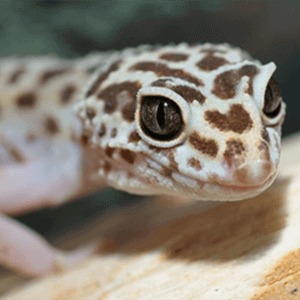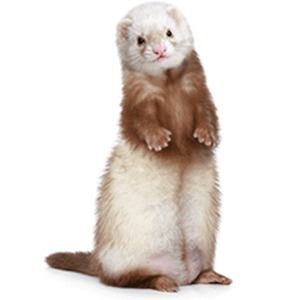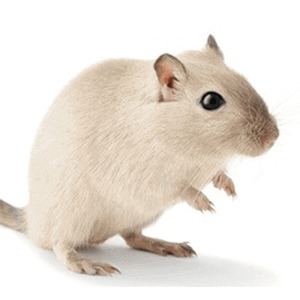Exotic Pet Care: Caring for exotic pets
Pet Rabbit Care (Rabbit/Bunnies)
Rabbits make great pets but they do require very specific nutritional and environmental needs. Proper nutrition is extremely important in maintaining the health of your bunny. Although rabbits are the third most common household pet, some owners may be less knowledgeable about their care and also their signs of illnesses. Since rabbits are a prey species, they instinctively hide their illness and early detection is key. We also offer spays, neuters, nutritional counseling and other dental and oral treatments for your pet rabbits.
- Signs or Symptoms -
Not eating or changes in appetite, abnormal growth of the incisors (front teeth), swellings along the upper or lower jaw, patches of missing fur, scratching of ears, skin redness, changes in appetite, changes in droppings, growths or masses etc.
- Common Rabbit Illnesses -
Dental problems affecting ability to eat, ear infections, eye infections, upper respiratory diseases, skin problems such as mite infection, intestinal issues related to improper diet, obesity, arthritis, uterine cancer (in females if not spayed), and bladder stones or bladder sludge.
Pet Lizard Care (Bearded dragon, Iguanas, Geckos)
Many factors go into maintaining and keeping a reptile healthy. Especially important is maintaining a proper environment to ensure that they stay healthy and keep their immune system functioning properly. Proper enclosures include correct lighting, sufficient humidity, proper temperatures and thermal gradients, appropriate foods for the species and age of the reptile, proper cleaning and disinfection, and regular monitoring of the animal. A proper UVB and UVA light source and periodic accessibility to natural sunlight is also extremely important.
- Signs or Symptoms -
Changes in feeding patterns, sluggish or non-responsiveness, changes in droppings/feces, shedding problems, behavioral changes, swellings of the toes, limbs, joints, or tail, gaping of the mouth, redness or inflammation around the mouth .
- Common Lizard Illnesses -
Metabolic Bone Disease, Intestinal Impactions, Intestinal Parasites, loss of digits, rectal prolapse, tail loss, shedding problems.
Pet Hedgehog Care
Hedgehogs have recently increased in popularity in recent years. Although their spines can be a little intimidating, with proper care and attention they can make interesting pets. Normally solitary creatures, they also more active during the nighttime hours. In some states and municipalities, they are illegal so you may need to check with your county or state ordinances before getting one. They can also harbor Salmonella so they may not be the ideal pet for small children or immune-compromised individuals. Their diet is also a little different than what most people are accustomed to feeding. Their main diet will consist of invertebrates (such as insects and worms) with a variety of plant material, eggs, and small prey mixed in.
- Signs or Symptoms -
Not eating, masses or tumors, wobbly-like movements, loss of spines, itching or excessive scratching or weight loss, decreased activity.
- Common Hedgehog Illnesses -
Dental disease such as gingivitis, Obesity, high incidence of tumor rate in animals over 3 years of age, Salmonella, Skin Problems such as mange, mites, fungal or bacterial infections, intestinal parasites, Heart Disease, and Neurologic disease such as wobbly hedgehog syndrome.
Pet Snake Care
Snakes are another reptile commonly kept as pets. Many factors go into maintaining and keeping a snake healthy. Especially important is maintaining a proper environment to ensure that they stay healthy and keep their immune system functioning properly. Proper enclosures include proper temperatures and thermal gradients, appropriate foods for the species and age of the reptile, feeding frequency, proper cleaning and disinfection of the enclosure, and regular monitoring of the animal.
- Signs or Symptoms -
Decrease in appetite or prolonged fasting, retained sheds, nasal discharge, difficulty eating, mouth sores, bubbling from the mouth, open mouth breathing, trauma to their scales, and burns to scales due to improper
- Common Snake Illnesses -
Respiratory infections, skin infections, shedding difficulties, Stomatitis, shedding problems, masses or tumors, and burns to scales due to improper heating elements in the enclosure.
Pet Frog Care (Pacman Frog/Argentine Horned Frogs, Tree Frogs, Pixy Frogs, African Clawed Frog)
Although not cute and cuddly, frogs can be an interesting pet for an amphibian enthusiast. Not usually recommended for beginners, since many of these species require proper setup for them to thrive. Handling of frogs or any amphibian has to be kept to a minimum since many have a protective outer slime coat that can be affected by the oil from our hands.
- Signs or Symptoms -
Swollen body, inflammation or redness of the belly or legs, growths, masses, or other deformity, noticeable weight loss or not eating, discoloration of the skin, cuts or bruises, non-responsiveness.
- Common Frog Illnesses -
Skin Infections (fungal, bacterial), parasites, nutritional related disease, wounds, gastrointestinal impactions.
Pet Ferret Care
Ferrets are cute, cuddly, and mischievous. Ferrets love interaction and can be quite entertaining to watch. Due to their curious nature, they can also get in to trouble. It is important to provide them with appropriate toys and tunnels. Ferrets require constant supervision when out of their enclosures. They can be a lot fun to own but are typically prone to a variety of problems as they get older such as endocrine disorders and intestinal related disorders. They also require specific nutritional needs and require vaccinations such as rabies and distemper.
- Signs or Symptoms -
Weight loss, abnormal feces, decreased activity, not eating or changes in eating habits, scratching of ears, skin redness, eye redness, growths or masses, hair loss, intense scratching at the fur
- Common Ferret Illnesses -
Ear Mites, flea infestations, dental disease, adrenal disease, intestinal disease, insulinoma and cancer (older ferrets).
Pet Rodent Care (rats, mice, gerbils, guinea pigs, and Chinchillas)
With the right environmental enrichment, proper diet and environment, domesticated rodents can make excellent pets. Signs of illness in any small mammal can be difficult to detect since they tend to hide symptoms due to their prey instinct. Early detection is key. They each require specific nutritional requirements. For example, guinea pigs are unable to produce their own vitamin C and need foods rich in this vitamin to fulfill their daily requirement. Selecting the proper hay is also important in both chinchillas and guinea pigs. Chinchillas are also not very suited for warm environments and can easily overheat. They should be housed indoors preferably in a room where the temperature does not go above 75 degrees with adequate ventilation and kept cool and dry. Their coats also require proper dust baths once to twice a week. Chinchillas also have a longer life span than most rodents (an average of 8-10 years). With much shorter life spans, rats, mice, hamsters and gerbils can still provide great companionship. With appropriate interaction and proper toys and the right diet, these small mammals can be very interactive and loving.
- Signs or Symptoms -
Not eating or change in eating habits, decreased water intake, self imposed isolation, changes in dropping consistency or frequency, missing fur, scratching or self-mutilation, skin redness, decreased activity or movements, unkempt appearance such as dull and greasy coat, hunched posture, growths or masses, wounds sustained by fighting with other cage mates, discharge from the nose, and sneezing
- Common Rodent and Chinchilla Illnesses -
Dental problems affecting ability to eat, eye infections, upper respiratory diseases, skin problems such as mites or ringworm infection, intestinal issues related to improper diet, obesity, trauma from other cagemates, rectal prolapse, and Vitamin C deficiency also known as scurvy (guinea pigs), and polycystic ovaries (guinea pigs), Heat Stroke (Chinchillas especially prone), Fur Slip.
Pet Turtle and Pet Tortoise Care
Although both are considered reptiles, there can be a vast difference in their care and upkeep. As terrestrial animals, tortoises and some land turtles (such as box turtles) will thrive best in an enclosure that will allow plenty of access to natural sunlight and ability to dig. Aquatic turtles will thrive best in a properly maintained tank. The tank should be maintained with proper filtration system, water quality, water temperature, tank size appropriate for the size of the turtle, land docks for proper basking and UVB and UVA light source. Periodic accessibility to natural sunlight is also extremely important. Dietary considerations can also vary from species and proper calcium balance and nutrition can help your tortoise or turtle remain healthy.
- Signs or Symptoms -
Decrease in appetite, misshapen shell or beak, discoloration of the shell, difficulty submerging (aquatic turtles), nasal discharge, swollen eyes or ears, difficulty eating, decrease or changes in feces.
- Common Turtle & Tortoise Illnesses -
Shell damage, respiratory infections, skin infections, nutritional deficiencies and vitamin deficiencies, bacterial or fungal infections affecting the shell, metabolic bone disease and beak deformities.
Exotic Pet Care- Parkland Veterinary Hospital
Whatever the problem and whatever your concerns, we will determine the right mode of care for your exotic pet's health care needs. We do X-rays/Radiographs, surgery, mass removals, lab tests, and other medical treatments for exotic pets. We also offer client education on proper nutrition (what feeding options are available and what's the best thing to feed based on current health status or health concerns). Our goal is to help your exotic pet live a long, happy, and healthy life. We treat small mammals, frogs, and reptiles (snakes, lizards). For appointments please call: 954-757-1729.
- About the above information/Disclaimer -
Information presented here does not represent a comprehensive guide on exotic pet care. To learn more please contact our veterinarian for exotic pet care information. We offer client education with care sheets as part of a exotic pet medical examination.
- Useful Websites to Visit for more Information -
- General Information on Exotic Pet Healthcare: www.pethealthnetwork.com/exotics-home
- Reptile Husbandry: anapsid.org, chelonia.org/care.htm
- Rabbit Husbandry: rabbit.org/category/care/
- Rodent Husbandry: veterinarypartner.com, afrma.org/rmindex.htm
- Hedgehog Husbandry: hedgehogcare.org








